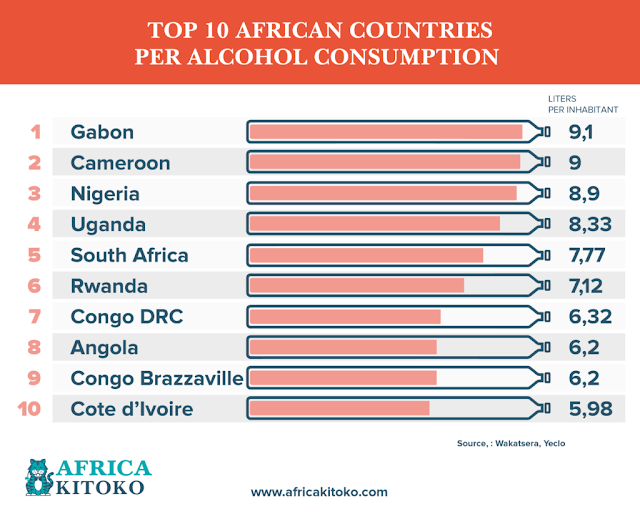Introduction
Drug abuse and high alcohol consumption have become increasingly prevalent issues across the African continent in recent years. This alarming trend has triggered concerns among public health officials, policymakers, and communities alike. To gain a comprehensive understanding of the situation, it is imperative to analyze the different factors contributing to the rise of drug use and high alcohol consumption across various African countries.
1. Socioeconomic Factors
Many African nations struggle with poverty, unemployment, and limited access to education and healthcare. These conditions create an environment where individuals, particularly youth, become susceptible to drug abuse and alcohol consumption as coping mechanisms. Unemployment and frustration can lead to feelings of hopelessness, increasing the likelihood of turning to substances.
2. Conflict and Instability
Several African countries have experienced prolonged periods of internal conflict and political instability. Countries such as Somalia, Democratic Republic of Congo, and South Sudan face ongoing conflict, which disrupts social structures, weakens governance, and allows the drug trade to thrive. In these tumultuous environments, drug use and high alcohol consumption often serve as an escape from the harsh realities of everyday life.
3. Porous Borders and Drug Trafficking
Africa's extensive coastlines, porous borders, and weak law enforcement contribute to the ease with which drugs are smuggled across the continent. The illicit drug trade, primarily involving cannabis, heroin, cocaine, and methamphetamine, has intensified and flourished due to the continent's strategic geographic location between drug-producing regions and consumer markets.
4. Influence of Western Culture
The proliferation of Western media, music, and popular culture has played a role in shaping cultural attitudes towards substance abuse in Africa. The portrayal of drug and alcohol consumption in movies, music videos, and online platforms has glamorized substance abuse, particularly among the younger generation, leading to increased experimentation and acceptance of such behaviors.
5. Lack of Awareness and Inadequate Health Systems
In many African countries, public awareness campaigns regarding the consequences of drug use and high alcohol consumption are lacking. Additionally, limited access to effective rehabilitation centers and treatment facilities poses a significant challenge. As a result, individuals struggling with addiction often face societal stigmatization and are unable to seek the help they need to combat substance abuse.
6. Alcohol Culture and Legality
Alcohol has an established historical and cultural footprint in many African societies. Traditional brews, such as palm wine and sorghum beer, have been consumed for generations. However, factors such as globalization, urbanization, and economic development have led to increased access to commercial alcohol combined with changing societal norms, resulting in a rise in excessive alcohol consumption patterns.
7. Impact of COVID-19
The COVID-19 pandemic has further exacerbated the drug abuse crisis across Africa. The economic fallout caused by the pandemic has led to increased poverty, unemployment, and mental health issues, which, in turn, have fueled substance abuse. Additionally, lockdowns and physical distancing measures have disrupted access to crucial support systems, leaving individuals more vulnerable to drug use.
Read also:
- Alcohol Addiction: Unmasking the Signs, Confronting the Complications, and Embracing Recovery
- How to Deal with Alcohol Consumption Addiction
Conclusion
The rise in drug use and high alcohol consumption across various African countries demands urgent attention and comprehensive strategies. Addressing these issues requires a multi-faceted approach, encompassing both prevention and rehabilitation efforts, along with measures to strengthen law enforcement, raise awareness, and improve access to quality healthcare. By addressing the socioeconomic, cultural, and political factors contributing to this trend, African nations can seek to curb the rising tide of substance abuse and build healthier and thriving communities.



Post a Comment
Full Name :
Adress:
Contact :
Comment: